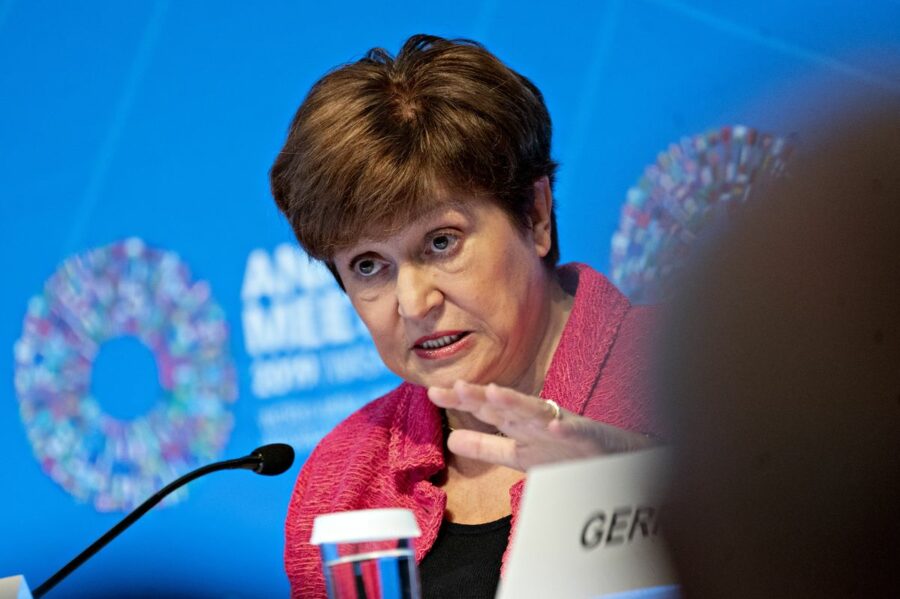The International Monetary Fund (IMF) will cut its global growth estimates for 2022 and 2023 as Russia’s war in Ukraine drives food and energy prices higher, piling pressure on already fragile economies, said Managing Director Kristalina Georgieva.
Georgieva warned that the world was in “a very dangerous time.”
The global lender will downgrade its growth outlooks for 143 economies representing 86 percent of global economic output, although most countries will maintain positive growth, Georgieva said in a speech ahead of new forecasts to be released at next week’s IMF and World Bank spring meetings.
According to Reuters, Georgieva, who previously flagged a likely downgrade, said Russia’s invasion of Ukraine was “sending shockwaves throughout the globe” and dealing a massive setback to countries struggling to recover from the still-raging COVID-19 pandemic.
“The root cause of what we face today is the war, and it is the war that must end,” Georgieva said in remarks to the Carnegie Endowment for International Peace in Washington.
“In economic terms, growth is down and inflation is up. In human terms, people’s incomes are down and hardship is up,” she added.
Western sanctions imposed on Russia reflected “a global order that has been severely impacted,” she noted, warning of a major new threat, the fragmentation of the global economy into geopolitical blocs, with differing trade and technology standards, payment systems, and reserve currencies.
The crisis is impacting food security
She said the war was also aggravating food insecurity across the globe, given disruptions to grain and fertilizer supplies from Ukraine, Russia, and Belarus that are driving up food prices and hitting the weakest countries the hardest.
In addition, Georgieva did not provide a specific target for global growth but has said previously it would be lower than the 4.4 percent the IMF forecast in January, a figure already reduced by half a percentage point from the Fund’s prior forecast due to lingering supply chain disruptions caused by the pandemic.
Moreover, she warned that fragmentation of the global economy was the biggest threat to the post-World War Two, U.S.-led economic order governed by the IMF, the World Bank, and other institutions created at the end of that conflict.
“Such a tectonic shift would incur painful adjustment costs. Supply chains, Research and development, and production networks would be broken and need to be rebuilt,” she said, adding that, “Poor countries and poor people will bear the brunt of these dislocations.”
Furthermore, she concluded by saying that the shift is already impairing the world’s ability to work together to resolve the Ukraine war and COVID-19 crises and threatens to derail cooperation on climate change and other challenges.








